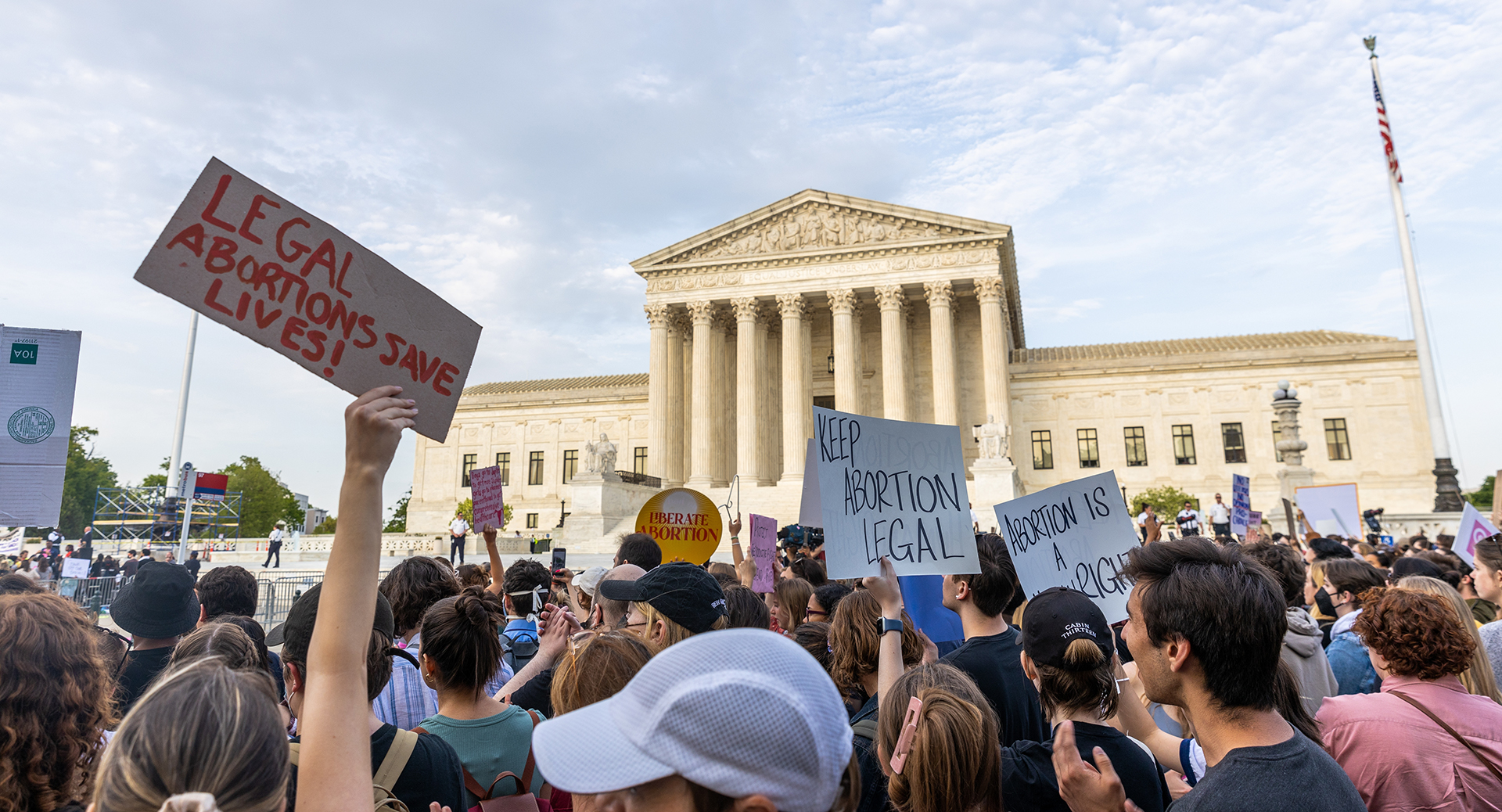The US Supreme Court has overturned Roe v Wade. The decision stipulates that individual states will determine abortion rights. Nearly half of the states already have laws that ban abortion, and it is foresseable that further legal restrictions will be in place. This decision brings forth a new round of debate about the morality and legality of abortion.
One way of framing the moral question that so radically divides Americans is to raise a thought experiment in the form of a provocative question: can anyone ever justify detonating a bomb in a building, with massive destruction of property and loss of human lives? The very thought of it seems preposterous.
But, what if the building were, say, the Auschwitz gas chamber in 1944, and the casualties were SS guards? Gandhi famously wrote a letter to Hitler in 1939. The Mahatma appealed to the Führer for peace. Of course, we now know how naïve Gandhi was on that occasion. Nonviolent resistance worked when facing an oppressor like the British Empire, but the Third Reich was another ballgame. And for that very reason, if anybody ever detonated a bomb in the Auschwitz gas chamber— and in the process some SS guards died—, most reasonable people would have likely agreed that, at the very least, such an action would have been morally acceptable.
The person who detonated the bomb would not have been a terrorist. He/she would have been a freedom fighter. A terrorist targets civilians to advance a particular political point. In contrast, a freedom fighter targets combatants as self-defense. In our hypothetical scenario, the freedom fighter would have detonated a bomb in order to stop an ongoing genocide, and whatever casualties there may have been, they were active perpetrators of the genocide (SS guards), or victims who were about to die in the Holocaust anyway.
A disturbing thought experiment
Now, there are reasonable people on both sides of the abortion debate. But it is important to think about the implications of the anti-abortion view. If the fetus is a person, then in the United States alone, more than half a million persons per year are deliberately killed in abortion clinics. An estimated 62 million such killings have occurred since Roe v Wade in 1973. While not technically a genocide (in the sense of seeking to wipe out an entire ethnic group), it is very close to it, given the staggering number of victims. This raises the question: whenever someone detonates a bomb in an abortion clinic (as it occasionally happens), is that person a terrorist or a freedom fighter?
The overwhelming majority of those who hold anti-abortion views will be quick to say that such bombings are despicable acts of terrorism. But if the fetus is a person, how different is that from the freedom fighter who detonates a bomb in the Auschwitz gas chamber? The purpose in both cases is the same: an attempt to stop an ongoing genocide. Noncombatants are not targeted: in one case, SS agents are targeted; in the other case, active perpetrators of the genocide (abortion doctors and their assistants, women who want to interrupt pregnancies) are targeted. In both cases, innocent victims may be killed (Jews, unborn babies), but they were about to die anyways, and the bombing may actually contribute to save their brethren, by stopping the genocide.
Those who uphold the anti-abortion view may argue that there are legal ways of stopping the genocide, and for that very reason, any violent act targeting abortion clinics is unwarranted. Indeed, Roe v Wade has already been overturned. But at least in the initial phases of these changes, abortion will likely remain legal until six weeks. If the fetus is a person at conception, then even with the overturning of Roe v Wade, hundreds of thousands of persons will still be killed in abortion clinics.
In any case, the legal changes are still part of a long-term strategy. After the overturning of Roe v Wade, there is now a phase of debate amongst legislators at the state level. And while judges and politicians engage in endless debate, each year a large number of persons will continue to be killed in abortion clinics. Perhaps there may have been some diplomatic way to persuade Hitler to stop the killing machine in Auschwitz, but at the rate that Jews were taken to the gas chamber every day, there was no time to wait for nonviolent solutions. Something had to be done immediately. The same reasoning applies to abortion clinic bombings.
Secular humanist philosopher Stephen Kershnar sums up the argument as follows in his book Does the Pro-Life Worldview Make Sense?: “if the pro-life position is true, then it is permissible to assassinate abortion doctors. My argument rested on two premises. First, lethal violence may sometimes be used to defend innocent parties. Second, if the pro-life position is true, then, sometimes, assassinating abortion doctors is an instance of such defense.”
Can logic solve the problem?
Any reasonable person is presumably repulsed by the idea of approving abortion clinic bombings. But, if the above arguments are valid — as I believe they are — then only those of us who believe that the fetus is not a person are holding a consistent view. Those who bomb abortion clinics are terrorists —not freedom fighters — because they are not attempting to stop a genocide, inasmuch as fetuses are not persons. Nevertheless, those terrorists are more coherent than those pro-lifers whose views imply that there is an ongoing genocide, but somehow shy away from accepting the use of legitimate methods of self-defense to stop that genocide.
Philosophers are very fond of modus tollens. This is a deductive argument, in which we say, “if p, then q; not q, therefore not p”. If it is raining, then it is wet outside; it is not wet outside, therefore it is not raining. As applied to the abortion debate, the following modus tollens argument can be made: if the fetus is a person, then bombing abortion clinics is justified; bombing abortion clinics is not justified; therefore, the fetus is not a person. There are endless discussions about what exactly a person is, when exactly the nervous system has a capacity to feel pain, and so on. Those discussions are important, but in the meantime, this simple — but powerful — argument sheds light on the question of personhood, and it indicates that given the moral abhorrence of bombing abortion clinics, the fetus is not a person. And if the fetus is not a person, then abortion is morally neutral, and it ought not to be outlawed.
The views expressed in this article are the author’s own and do not necessarily reflect Fair Observer’s editorial policy.
For more than 10 years, Fair Observer has been free, fair and independent. No billionaire owns us, no advertisers control us. We are a reader-supported nonprofit. Unlike many other publications, we keep our content free for readers regardless of where they live or whether they can afford to pay. We have no paywalls and no ads.
In the post-truth era of fake news, echo chambers and filter bubbles, we publish a plurality of perspectives from around the world. Anyone can publish with us, but everyone goes through a rigorous editorial process. So, you get fact-checked, well-reasoned content instead of noise.
We publish 2,500+ voices from 90+ countries. We also conduct education and training programs
on subjects ranging from digital media and journalism to writing and critical thinking. This
doesn’t come cheap. Servers, editors, trainers and web developers cost
money.
Please consider supporting us on a regular basis as a recurring donor or a
sustaining member.
Support Fair Observer
We rely on your support for our independence, diversity and quality.
Will you support FO’s journalism?
We rely on your support for our independence, diversity and quality.






